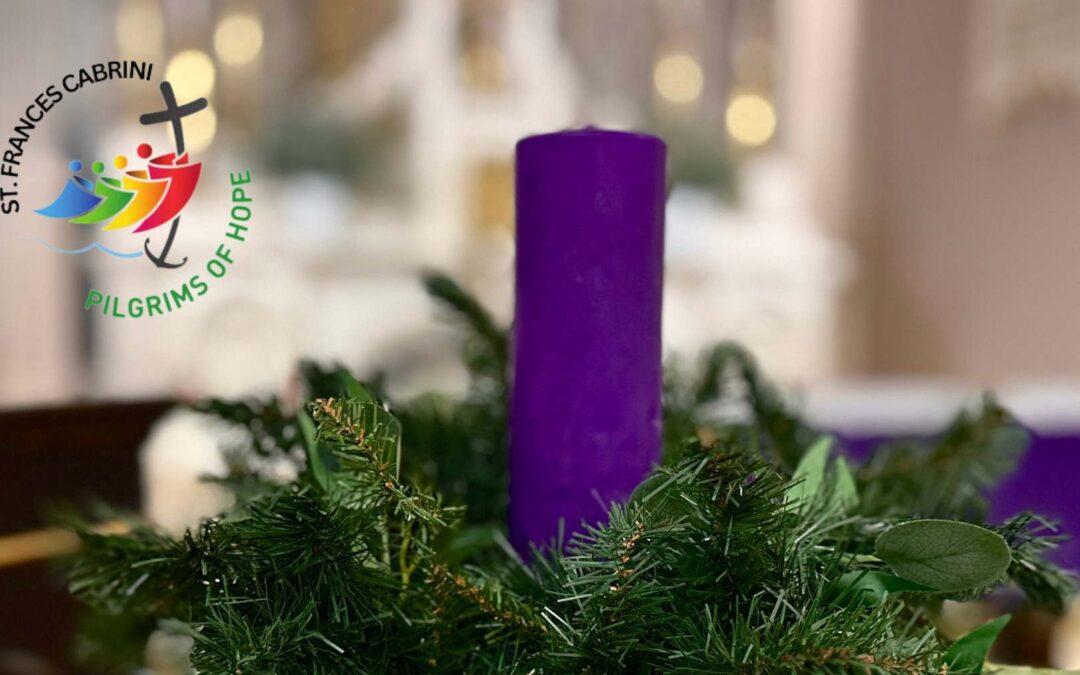Dear Friends,
I trust you had an enriching Thanksgiving with family and friends, that you gave thanks by eating and drinking too much. It is always an interesting way to say thank you to God – by consuming what he gives – in large quantities. Years ago, as a young uncle giving toys to my nieces and nephews, I came to understand how consumption could be a way of saying thank you. What I wanted most from those who received my gifts was that they would play with the toys, that they were having fun with what I gave. I did not care if they came back to me and said thank you. I cared that my gift was something they wanted. Maybe God feels the same way. God is happy when we use what he gave us. It is a way of saying thanks.
We begin our Advent journey this weekend. We pick up the theme from the upcoming Holy Year and strive to be Pilgrims of Hope. During these four short weeks of preparation, we are called to deepen our hope and trust, and to be messengers of hope to others in all the circumstances of our lives. May this weekend’s gospel remind us of Jesus’ coming return and help us to reflect on how we are living the wonders of Jesus’ Good News.
You might have noticed in the news that Pope Francis has asked all local churches to read and put into action the final document of the Synod of Bishops which concluded in October. The final English translation is not yet available; however, I have skimmed the working translation, and I think we at Cabrini will be happy with the Synod’s conclusions since it affirms the direction we have been going. I will be sharing bits and pieces of the document over the upcoming year so we can wrestle withit together. Of course, you can find it online and read the whole thing on your own! Here is a little taste of the working translation where it addresses us in particular:
The parish community that gathers in the celebration of the Eucharist is a privileged place of relationships, welcome, discernment and mission. Changes in how we experience and live our relationship with locality require us to reconsider how parishes are configured. What characterizes the parish is that it is a community that is not self-selecting. People gather there from different generations, professions, geographical origins and social classes and status. Responding to the new needs of mission requires opening up to new forms of pastoral action that take into account the mobility of people and the space in which their life unfolds. By placing a special emphasis on Christian initiation and offering accompaniment and formation, the parish community will be able to support people in the different stages of life in fulfilling their mission in the world. In this way, it will become more evident that the parish is not centered on itself but oriented towards mission. The parish is then called to sustain the commitment of so many people who in so many ways live and bear witness to their faith in through their profession, in social, cultural and political activities. In many regions of the world, small Christian communities or basic ecclesial communities are the terrain where meaningful relationships of closeness and reciprocity can flourish, offering the opportunity to experience synodality concretely. (paragraph 117)
May your Advent be holy.
Peace,
Fr. Damian



